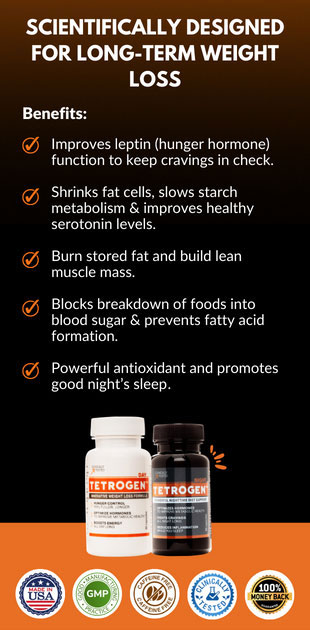
Why is maintaining a healthy Weight for Seniors important?
Obesity is highly prevalent among older adults. However, the recent rise in the prevalence of obesity has been attributed to environmental and societal changes rather than individual behavior. In particular, there has been a general trend to decreased physical activity and increased caloric intake.
As the elderly are particularly vulnerable, obesity and its complications may lead to disability. Hence it is a significant health concern in this age group.
Concept of aging
Aging is a natural and inevitable phenomenon. Medical science, Improved lifestyle, and social conditions have increased man’s lifespan over the past few decades. Life expectancy in developed countries is over 70 years. The older population is the fastest-growing population throughout the world.
Obesity
Obesity has reached epidemic proportions globally. More than a billion people are overweight adults across the globe.
World Health Organization indicates the following stats:
- Obesity results in 2.8 million deaths of adults each year.
- 23% of the ischemic heart disease, 44% of diabetes, And 7 to 41% of certain cancers are attributed to being overweight and obese.
Obesity is a predisposing factor for diabetes mellitus, cardiovascular disease, osteoarthritis, and sleep apnea.
Older adults in high and middle-income groups are vulnerable to overnutrition and obesity. In addition, aging is usually associated with a decline in physical activity and an increase in a sedentary lifestyle.
Consequences of obesity.
Metabolic syndrome
Metabolic syndrome and T2DM(formerly noninsulin-dependent diabetes mellitus, or adult-onset diabetes) are typically common in seniors who are overweight and obese.
Arthritis
Overweight and obese elderly are at a greater risk of developing arthritis than those with an average body mass index. If strain persists for a long time in the elderly, it may also lead to osteoarthritis of weight-bearing joints. Arthritis is a significant cause of physical immobility.
Cardiovascular Disease
Cardiovascular diseases is another broad category of diseases related to obesity among the elderly.
Pulmonary disorders
Abdominal obesity, in particular, is associated with pulmonary function abnormalities, obesity- hypoventilation syndrome, and destructive sleep apnea.
Cancer
WHO reports indicate that overweight and obesity are the most important known avoidable causes of cancer other than tobacco. Obesity enhances the risk of several cancers such as breast, colon, gallbladder, uterine, cervical, and prostate cancers.
Urinary Incontinence
This is a common and woeful problem for the elderly and is directly associated with increased BMI.
Cataracts
Various studies have been conducted on the elderly, typically 60 years and above. These studies suggest that overweight and obesity are associated with increased cataracts and cataract surgery.
All these health-related issues lead to impaired quality of life among the elderly.
Management of weight among seniors
We all have the potential to maximize and boost our health, reduce the risk of disease, add vitality to our years, and increase our health spans.
Research has proved that it is never too late to make improvements. However, it is crucial to understand that our nutritional needs change with age.
Seniors need fewer calories but more protein, calcium, fiber, and specific vitamins and minerals.
Diet
Our eating habits impact the way we age. Science has proved that a well-balanced and varied diet of nutritious foods such as fruits and veggies, whole grains, legumes, nuts, lean proteins is critical to good health. In addition, limited sugar and salt, saturated or solid fats, alcoholic beverages help maintain healthy body weight.
Most weight-loss regimens for people older than 65 years are designed with a 500-750 kcal deficit per day, giving approximately 500 grams per week to weight loss.
A balanced meal must consist of the following:
Carbohydrates such as brown rice, whole grains, and cereals.
Proteins such as fish, chicken, meat, eggs, cheese, tofu, and beans.
Fiber from fresh fruits and vegetables.
Fluids such as plain water and healthy soup.
Ten best foods for senior citizens
Beans and legumes
These provide much plant-based protein. Try chickpeas, kidney beans, and black beans to get more protein into your diet.
Cacao
One way to improve your diet is to replace sweets with healthier options. Cacao is similar to chocolate, but it helps your heart and blood pressure.
Salmon
Salmon has been a healthy favorite for centuries. It is full of Omega3, fatty acids, vitamin B, proteins, and more.
Maca
Maca is derived from a root commonly found in Peru. It can help with your energy levels, mood, and stamina and usually comes in powdered form to add to smoothies.
Kale
All leafy greens are great for your system, but kale packs a punch. This veggie is full of calcium, Vitamin A, C, and fiber.
Green Tea
Try substituting your daily cup of coffee with green tea throughout the day. Green tea has many benefits, including being anti-inflammatory.
Avocados
Avocados are rich in the good fat our bodies need to thrive. In addition, these good fats are beneficial for brain health.
Turmeric
Turmeric has always been known for its health attributes, including its anti-inflammatory and antioxidant effects.
Sweet bell pepper
They have very few calories and contain the daily requirement of Vitamin C and B6, which helps your immune and nervous system.
Carrots
Carrots are rich in Vitamin A. Studies have shown that people consuming adequate levels of Vitamin A are less likely to develop Alzheimer’s disease.
Ten foods to avoid for seniors.
Avoid pickles
One pickle is loaded with 100 milligrams of sodium. With high blood pressure becoming a health concern as we age, we must cut down on foods that can raise our blood pressure.
Potatoes
You must cut down on this food, especially fried or sprinkled with bacon bits. In addition, potatoes are starchy and are high in glycemic index, which expands your waistline and raises your insulin levels.
Sugar
Limit your consumption of sugar if you want to keep your weight down.
Butter
Swap butter with olive oil or nuts for a healthier option.
Alcohol
Alcohol is good for you only if you have it in moderation. Multiple glasses in one sitting can undo their favorable properties.
Steam bag frozen vegetables
This may be your go-to, quick, and easy fix for getting vegetables into your diet fix. However, the option is not as healthy as you might think. Pre-packaged veggie options contain added ingredients that take away their health benefits.
Pizza
All the dough, cheese, and salty toppings are terrible for us. But, as we grow older, those components can ruin our waistlines and contribute to our long-term fight against obesity.
Bacon
It contains fats and salts that are not good for you and increase your heart disease and stroke risk.
Cherries
They may have anti-inflammatory properties and loads of antioxidants but are also rich in sugar. Eating too many cherries can also lead to bloating and nausea.
Avoid red and processed meat.
Both red and processed meat contains chemical purine and nitrite, worsening joint pain and arthritis.
Exercise
Multimodality exercise(endurance, resistance, balance, and flexibility training)improves physical function and frailty.
Ideal body weight is critical in maintaining good health and independence as we age. Unfortunately, we have an epidemic and overweight and obese older adults. Most seniors are unable to get the nutrition that they need. Without proper nutrition, our bodies cannot stay healthy, fight off diseases or deal with illnesses. Poor nutrition weakens our immune system, making us vulnerable to infections.
Healthy body weight can help in the following ways:
- Lower blood pressure
- Lower blood sugar levels
- Manage arthritis
- Reduce the risk of cancer
- Reduce the risk of cardiovascular diseases
- Prevent and slow- down the progression of eye diseases.
- Keep bones and muscles strong.
- Help maintain brain health.
As age sets in, all the systems in your body inevitably begin their slow decline.
Older adults are more likely to experience the following changes in their lives, which should be kept in mind while formulating a diet plan for them.
- Changes in taste
- Chewing and swallowing abilities
- Have more medical conditions
- Take medications that impact their appetite
- Require changes to diets
- They may experience a decline in their sense of thirst and face bladder issues.
- They are more likely to experience social isolation, which can impact appetite.
- Their ability to absorb and use nutrients may decline with age.
A weight loss plan that may be excellent for youngsters may not work well for seniors. There can be multiple factors such as muscle and joint pains that may prevent you from doing much physical activity.
Seniors with weight issues should consider natural weight loss supplements with zero side effects to maintain a healthy weight. Visit tetrogen to get an insight into what might be helpful for you.

Mike Dorfman is BS in Biochemistry from the University of Colorado. Mike’s has worked as a personal trainer for Gold’s Gym and helped many clients achieve their weight-loss and fitness goals.
To health first, weight-loss second. Mike and Tetrogen are here to help you make the transition to the healthier, happier, and thinner you!
SIGN UP NOW FOR YOUR FREE WEEKLY EMAILS!
Get brand-new healthy recipes (easy ones), tips 'n tricks, and more...
Bonus: Get discount coupons for our products on a subscription!
You will receive one tip per week. You can unsubscribe at any time. We will never share your information with third parties.










